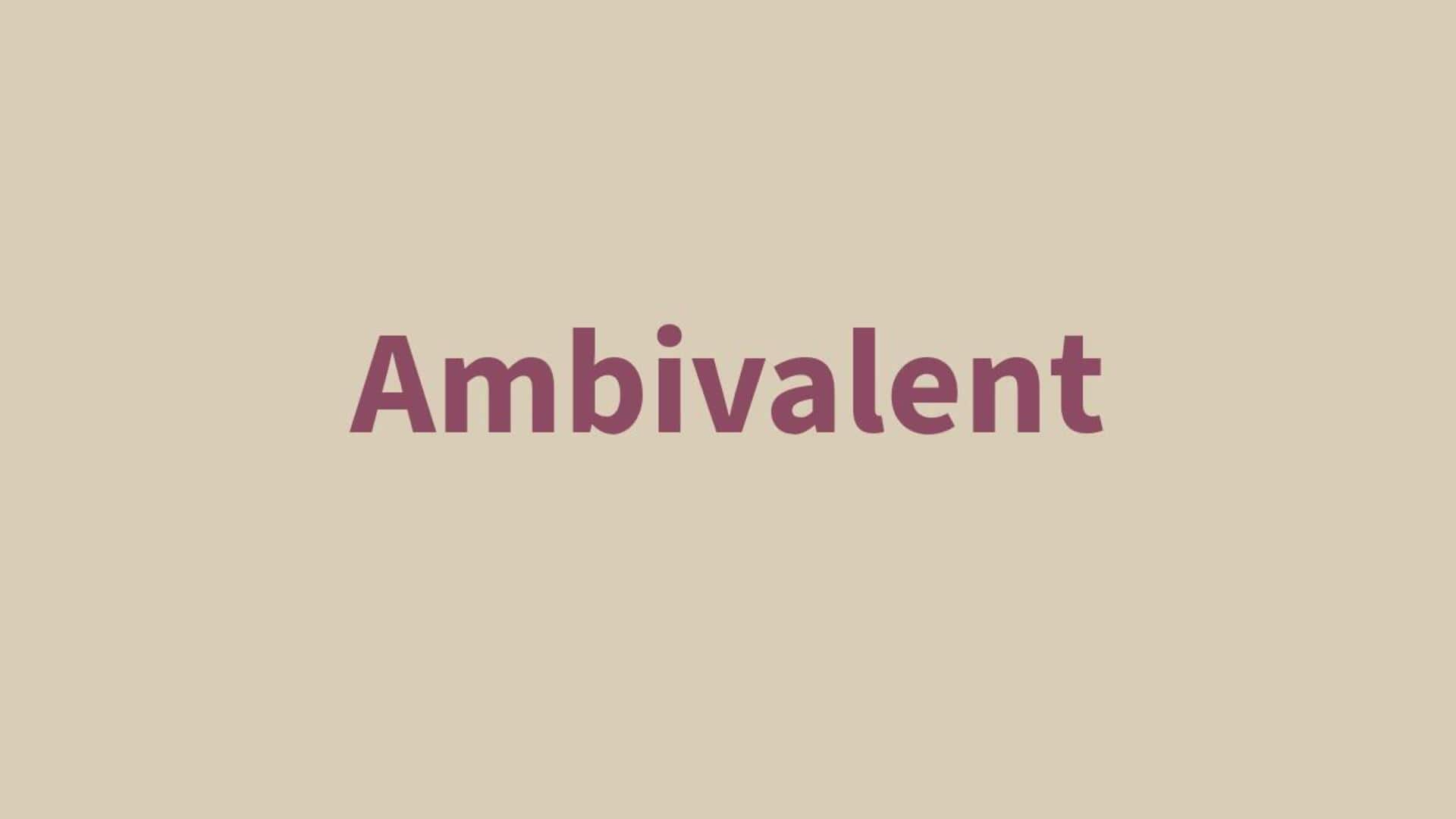
Word of the Day: Ambivalent
What's the story
"Ambivalent" is an adjective that describes mixed or contradictory feelings toward someone or something.
It signifies being uncertain between two opposing options or emotions.
For example, you might feel "ambivalent" about accepting a job offer that promises higher pay but requires you to move far from your loved ones.
Origin
The origin and meaning of 'ambivalent'
The word "ambivalent" comes from the German word ambivalenz, created by Swiss psychologist Eugen Bleuler in 1910.
It combines the Latin prefix ambi- meaning "in two ways" and valentia, meaning "strength."
The term entered English in the early 20th century through scientific vocabulary used by researchers worldwide.
Synonyms
Synonyms for 'ambivalent'
There are many words that share similar meanings to "ambivalent," such as conflicted, uncertain, indecisive, and equivocal.
Depending on the context, wavering and doubtful can also be used.
Each synonym highlights an aspect of the hesitation or inner conflict that "ambivalent" captures so precisely.
Usage
Sentence usage
Here is how "ambivalent" can be used in sentences:
"She felt 'ambivalent' about moving to a new city, torn between excitement for new opportunities and sadness at leaving her hometown."
"His 'ambivalent' attitude toward his career path made it difficult for him to commit to a specific role.
"Many people feel 'ambivalent' about technology, appreciating its conveniences while worrying about its impact on privacy."
Self-reflection
Embracing 'ambivalence'
Psychologists use "ambivalence" to describe mixed feelings often felt during personal growth or relationships.
It's a normal response that shows how complex our emotions can be, especially during big changes.
Instead of avoiding "ambivalence," embracing it can help you reflect, understand your feelings better, and make thoughtful decisions that support your growth.